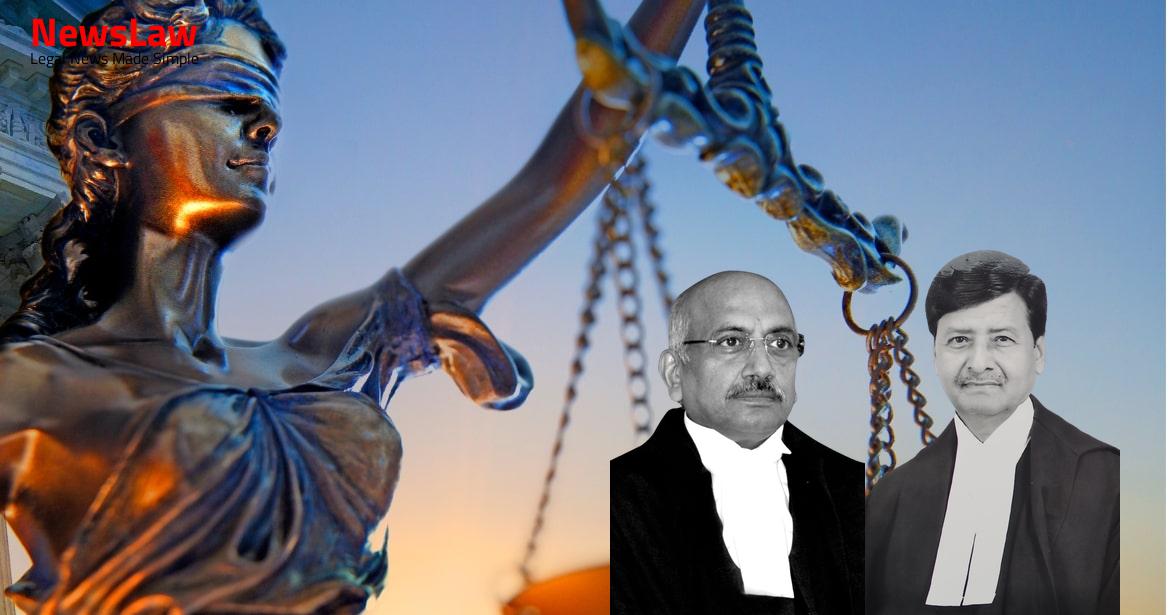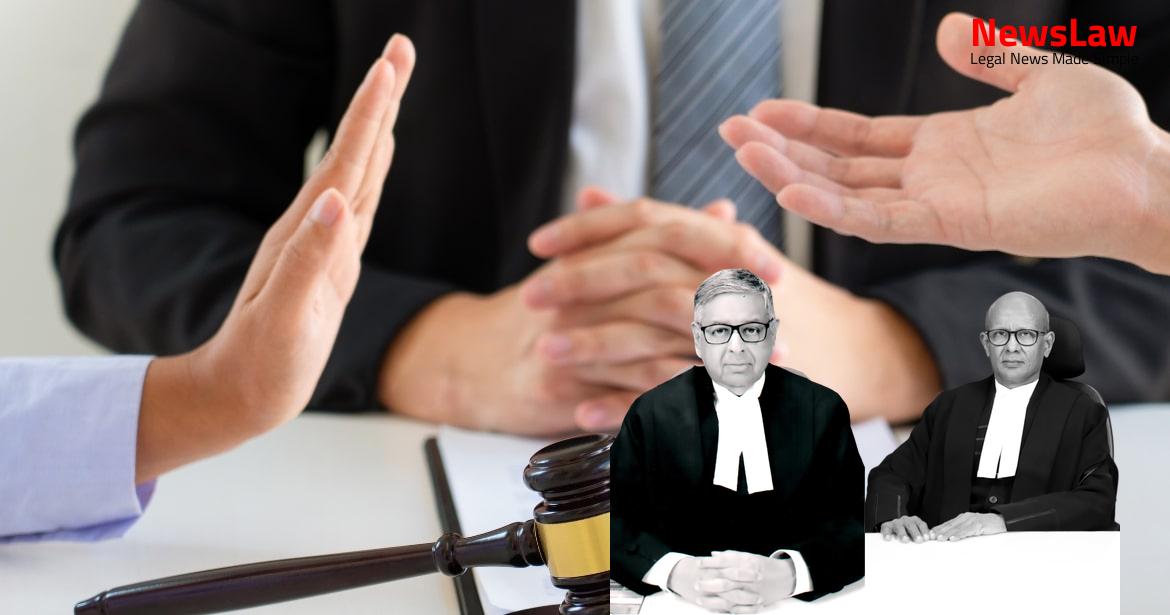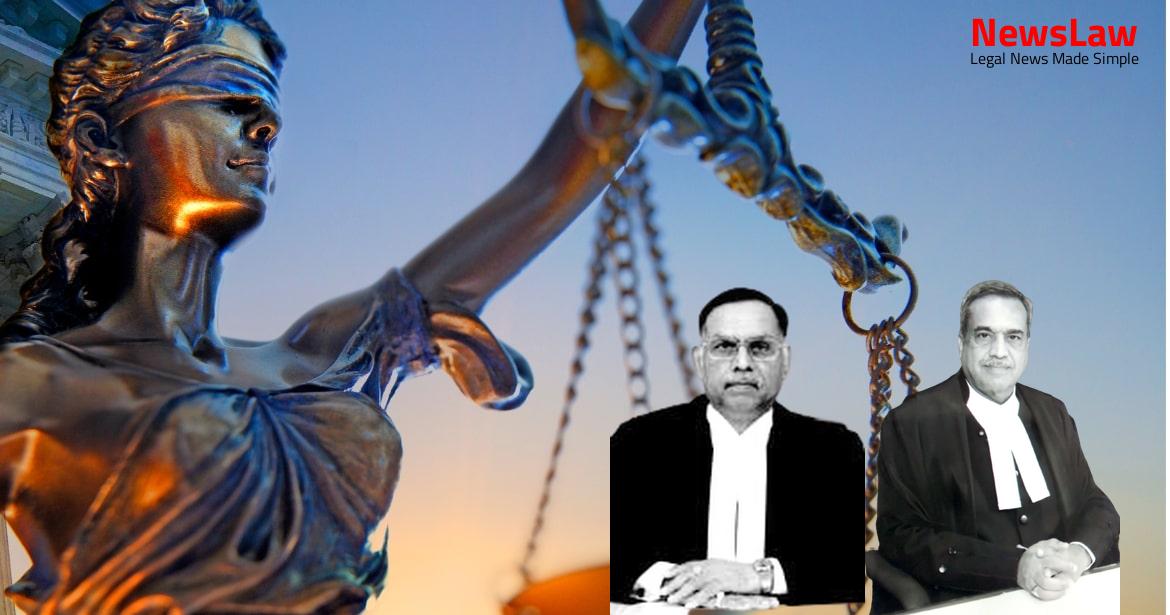Explore the intricate legal analysis by the court in a case highlighting the delicate balance between citizens’ fundamental rights and investigative powers. The case delves into crucial aspects of upholding constitutional principles while ensuring fair and transparent criminal investigations. Dive into the complexities of legal proceedings and the intricate scrutiny applied by the court to safeguard fundamental rights and maintain the integrity of the investigative process.
Facts
- The petitioner filed multiple Interim Applications seeking various reliefs in relation to FIRs and complaints lodged against him.
- The petitioner denies propagating communal views during news broadcasts that led to complaints against him.
- An incident on 23 April 2020 where the petitioner’s car was confronted by two individuals on a motor-cycle is mentioned.
- The petitioner claims a vindictive campaign was launched against him by the Indian National Congress and its activists online.
- Details of specific orders passed by the Court on 24 April 2020 transferring FIRs, granting interim protection, and allowing anticipatory bail application.
- Allegations of biased investigation, coercion, and misuse of power by the Mumbai police are mentioned in the petitioner’s submissions.
- The petitioner seeks stays, transfers of investigations to CBI, permission for video conferencing, and security for himself and family through various Interim Applications.
- Concerns about fair and impartial investigation, allegations of political motivation, and conflicts of interest are raised in the petitioner’s submissions.
- Incidents of prolonged questioning, potential health risks during interrogation, and aspects of the investigation are outlined in the submissions.
- The petitioner’s assertions about investigation protocols, questions asked during interrogation, and actions of political figures related to the case are highlighted.
- Legal actions taken by the petitioner, incidents leading to FIRs, and requests for quashing complaints and FIRs are detailed.
- The petitioner urges for safeguards, transparency, and fairness in the investigation process amid allegations of malice and misconduct.
- Various IAs and submissions by the petitioner and the Mumbai police are discussed to support their respective contentions.
- Court noted the need to balance between various governing principles
- Balancing the criminal process to avoid vexatious complaints
- Protecting journalistic freedom under Article 19(1)(a) of the Constitution
- Emphasizing recourse to remedies available under the Code of Criminal Procedure 1973
- Granting protection of personal liberty against coercive steps for a limited duration
- Allowing investigation of FIR to proceed in accordance with the law
- Addressing petitioner’s apprehension of safety threat and safety of his business
- Petitioner and State of Maharashtra agreed to transfer FIR 238 of 2020 for investigation
- Two persons involved in the attack were granted bail on 27 April 2020
Also Read: Legal Analysis on Arbitration Petition Limitation Period
Arguments
- Mr Harish Salve, representing the petitioner, argues that the FIRs are attempts to suppress the freedom of expression of an independent journalist protected under Article 19(1)(a) of the Constitution.
- He alleges that the Mumbai police’s investigation is malicious, with interrogations straying from the FIR’s scope and targeting the petitioner for criticizing the President of the INC.
- Salve points out the suspicious circumstances surrounding the FIRs, such as their similarity, choice of states with INC governance, and social media interference during the investigation.
- The petitioner seeks to amend the petition to declare Section 499 of the IPC as unconstitutional and requests a writ to prevent further FIRs and investigations related to specific broadcasts.
- The FIR against the petitioner involves statements linking the Muslim community to the spread of Covid-19, leading to charges under various sections of the IPC.
- The petitioner was interrogated on 27 April 2020.
- The respondent’s arguments include the accusation that the petitioner is using Article 32 as a means to interfere with the police investigation and bypass normal procedures under the CrPC.
- The respondent argues that the petitioner is attempting to convert the jurisdiction under Article 32 into one under Section 482 of the CrPC.
- The respondent highlights that the exercise of fundamental rights under Article 19(1)(a) is subject to limitations depicted in Article 19(2), which are applicable in this case.
- It is emphasized that the petitioner cannot seek the intervention of the Court during an ongoing investigation with the application of the sub judice doctrine.
- The respondent argues that the transfer of an ongoing investigation to the CBI should be sparingly exercised in exceptional circumstances, and that the accused has no locus standi in the choice of the investigating agency.
- Various points are raised by the respondent including the lack of movement by the petitioner for anticipatory bail or quashing of the FIRs despite the protection granted by the Court, the absence of a complainant being impleaded initially, the non-commencement of investigation in one FIR, and the petitioner’s consent to the transfer of investigation in another FIR.
- The respondent contends that the conduct of the petitioner indicates that he is hindering the investigation process.
- Overall, the respondent argues that the petitioner has not established a sufficient case for the transfer of investigation to the CBI based on the presented arguments.
Also Read: Analysis of High Courts’ Jurisdiction and Court Orders Under Article 142
Analysis
- The court rejected the prayer for transferring the investigation to the CBI.
- The interim order transferring FIR 238 of 2020 to NM Joshi Marg Police Station in Mumbai was confirmed.
- The court declined to entertain the prayer for quashing FIR 164 of 2020 under Article 32 of the Constitution.
- The petitioner was advised to pursue remedies available under the CrPC before the competent forum.
- All other FIRs in respect of the same incident were considered an abuse of process and were to be quashed.
- The investigation of the Palghar incident was found to be beyond the Mumbai police’s territorial jurisdiction.
- The court emphasized that transferring an investigation to the CBI is not routine and should be done sparingly in exceptional circumstances.
- The petitioner was advised to avail remedies under the CrPC before the competent court for any grievances regarding investigation.
- The court noted a distinction between the maintainability and entertainability of a petition under Article 32.
- The court considered fairness in criminal justice administration and decided to quash all other FIRs, except the one under investigation in Mumbai.
- The investigation at the NM Joshi Marg Police Station in Mumbai was clarified to not cover any alleged act of criminal defamation.
- The investigation transfer to the CBI was deemed unnecessary, and the checks and balances under the CrPC were deemed adequate.
- The power to transfer an investigation must be used sparingly and only in exceptional circumstances.
- Multiple criminal proceedings on the same cause of action were analyzed in TT Antony v State of Kerala.
- Free citizens’ existence is impeded when news media is constrained to adhere to a singular position.
- Questions you cannot answer are usually better for you than answers you cannot question, as stated in Yuval Noah Harari’s book ’21 Lessons for the 21 Century’.
- The court reiterated the need to strike a balance between citizens’ fundamental rights under Articles 19 and 21 and the police’s investigative power.
- Investigation transfers to the CBI should only occur in rare and exceptional cases to retain public confidence in the impartiality of State agencies.
- Subjecting a journalist to multiple complaints and investigations across states stifles the exercise of freedom of speech.
- The journalist’s exercise of fundamental rights must align with provisions under Article 19(2).
- FIRs based on the same incident or foundation may lead to their quashing, while those related to different incidents or counter-claims allow investigations to proceed.
- Courts must avoid commenting on ongoing investigations to facilitate fair and transparent proceedings.
- Investigative agencies have the discretion to determine the nature of questions and manner of interrogation during investigations.
- Mere allegations against the police are insufficient grounds for transferring investigations, as per CPDR, West Bengal.
- Article 32 of the Constitution entrusts the court with protecting citizens’ fundamental rights.
- Persons under the age of eighteen, or suffering from mental illness, sickness, or infirmity unable to make a complaint can have someone else make a complaint on their behalf.
- The Court of Sessions cannot take cognizance of an offense unless a complaint is made within six months of the alleged crime.
- Individuals accused in cases involving public officials or servants like the President, Vice-President, Governors, Ministers, or Union Territory administrators can have complaints filed against them in writing by the Public Prosecutor.
- Complaints in such cases must specify the facts of the offense, its nature, and other relevant details to inform the accused.
- The Public Prosecutor needs prior sanction from the State Government to file complaints against certain public officials.
- For offenses punishable under Chapter XXI of the Penal Code, a complaint must be filed by the person aggrieved by the offense before the court can take cognizance.
- Jurisdiction of the Court was invoked in the first Writ Petition based on the filing of multiple FIRs in various states, which is absent in the subsequent Writ Petition.
- Quashing the FIRs in the first petition does not express any opinion on the merits of the FIR being investigated by the NM Joshi Marg Police Station in Mumbai.
- The constitutional challenge to the validity of the provision was not addressed in these proceedings.
- FIRs/complaints based on the same cause of action were quashed following the principle established in TT Antony case.
- Quashing of the FIRs listed does not indicate any opinion on the FIR under investigation by the NM Joshi Marg Police Station.
- No new FIR or complaint can be initiated or pursued in any other forum for the same cause of action from the broadcast on 21 April 2020 by the petitioner on R Bharat.
- The subsequent Writ Petition filed by the petitioner regarding the FIR at Pydhonie Police Station (FIR 137 of 2020 dated 2 May 2020) was not entertained.
Also Read: Electoral Malpractices in Mayor Election
Decision
- Pending applications disposed of.
- Petitioner can pursue remedies under the law in respect of the FIR.
- Protection granted to the petitioner extended for three weeks to pursue remedies in accordance with the law.
- CP, Mumbai to consider providing security at petitioner’s residence and business establishment based on threat perception.
- No expression of opinion on the merits of the allegations in the FIRs.
- Other FIRs or complaints in respect of the same cause of action not maintainable.
- Petitioner dismissed with liberty to pursue remedies according to the law.
- Protection against coercive steps extended until the decision of the Court.
- Amendments as proposed are allowed.
Case Title: ARNAB RANJAN GOSWAMI Vs. UNION OF INDIA (2020 INSC 400)
Case Number: W.P.(Crl.) No.-000130 / 2020



